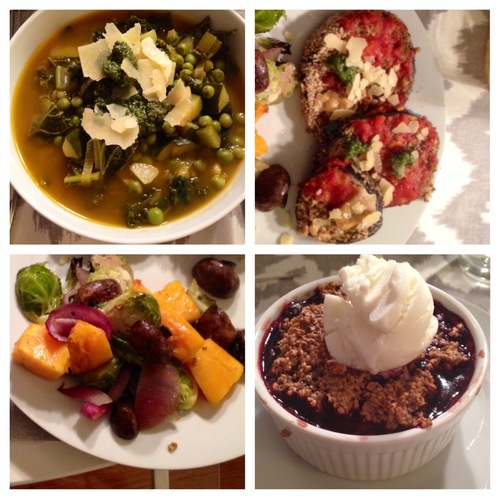During the holiday season, food seems to be a very common subject. Whether discussing their favorite fall recipes, Thanksgiving traditions, hot chocolate and peppermint bark, or how to keep off the "holiday weight," people seem to draw an indistinguishable connection between food and celebration.
But recently, it seems like discussing food with such a high degree of enthusiasm is not exclusive to the holidays. People seem to have taken a greater interest in cooking, going on food adventures, searching for new restaurants, and sharing pictures of food they have cooked or eaten.
My friends and I constantly discuss food. When we hear about new restaurants, we immediately send out the menus and add them to our never-ending lists of places to try. When we find appealing recipes, we no longer just put them in a folder, we add them to our Pinterest boards, post them on Facebook, or share them in an email. When we go out, we take pictures of our food and will likely Instagram them with a "geotag." And when we stay in and cook, we will broadcast our "domesticity."
But why? Why do we spend so much time discussing and sharing pictures of food? Is everyone really that obsessed with food and plating and color variation? Or is it a just a response to the increase in information about food? One could argue that it's merely an issue of accessibility. Maybe we can't avoid seeing it, so we can't avoid thinking about it and talking about it. Restaurant menus are more available online, food blogs are more popular than ever, if you look at Pinterest for even a few seconds, you will likely see at least five different versions of kale salad or gluten-free pasta, and if you scroll through Instagram, you cannot avoid a perfectly stacked burger or a delicious dessert.
But I think it is more than just accessibility. I think sharing experiences about food allows people to share something about their lives. With the increase in usage of social media, sharing what people cook, eat, or like allows them to divulge some information about who they are (or how they would like to be perceived) without overexposing themselves.
Think about it. If you post a picture of yourself at a very expensive restaurant, people will likely conclude that you are wealthy or like to spend money. If you post a picture of yourself stuffing your mouth with fast food, people will likely conclude that you are "fun" or "don't care about what people think" (which is kind of ironic anyway, since you posted the picture because you wanted people to come up with some sort of conclusion about who you are). If you post a picture of yourself in a foreign country or eating a very rare type of food (truffles, caviar, etc.), people will make other conclusions about your personality and your lifestyle. If you post pictures of home-cooked meals, people might conclude you are artistic, domestic, or might even jump to conceptions of how good of a husband/wife you would be. Of course, these conclusions may or may not be accurate, but that's not the point. The point is that food has become more and more of a standard for making judgments about others. And we facilitate this phenomenon with every post.
I am not saying there is anything wrong with this phenomenon... at least I hope not as I am one of its biggest victims. This year, one of my friends and I started a food blog (follow us on Instagram princesskitchen... the name is a long story). In addition to all the other things best friends talk about, we spend a large amount of time discussing favorite recipes and newly discovered restaurants. We plan what to cook at our weekly dinners, go grocery shopping, and of course document the cooking process so that we can share it with the world.
One of our meals that featured green minestrone soup with pesto, gluten-free eggplant parmesan, roasted seasonal vegetables, and a gluten-free berry crumble topped with frozen greek yogurt.
But would we be as enthusiastic about our weekly dinners without the support of our Instagram followers and encouragement on our Facebook posts? Probably not.
Sharing images of our food allows us to establish some sort of connection with the outside world during our nights in. Ironically, we probably interact more with other people during our weekly Princess Kitchen dinners than we do when we "do research" and go out to dinner. Even though our followers usually do not get to try the food, they see it, experience us experiencing it, and can even make it themselves since we post all of our recipes on our Pinterest page.
What seems like an activity between a couple of friends becomes something so much more than that. Other people care about what we make. They ask us about it, and the sharing continues, perpetuating the phenomenon: food as a social relation. Of course food has always played a large role in the social world, but social media has brought it to a new level. And, while I do not believe sharing food experiences is bad, I do think people have to be careful about what their posts reveal or the impressions their posts make on others. After all, if we are what we eat, then we probably are what we post as well.
